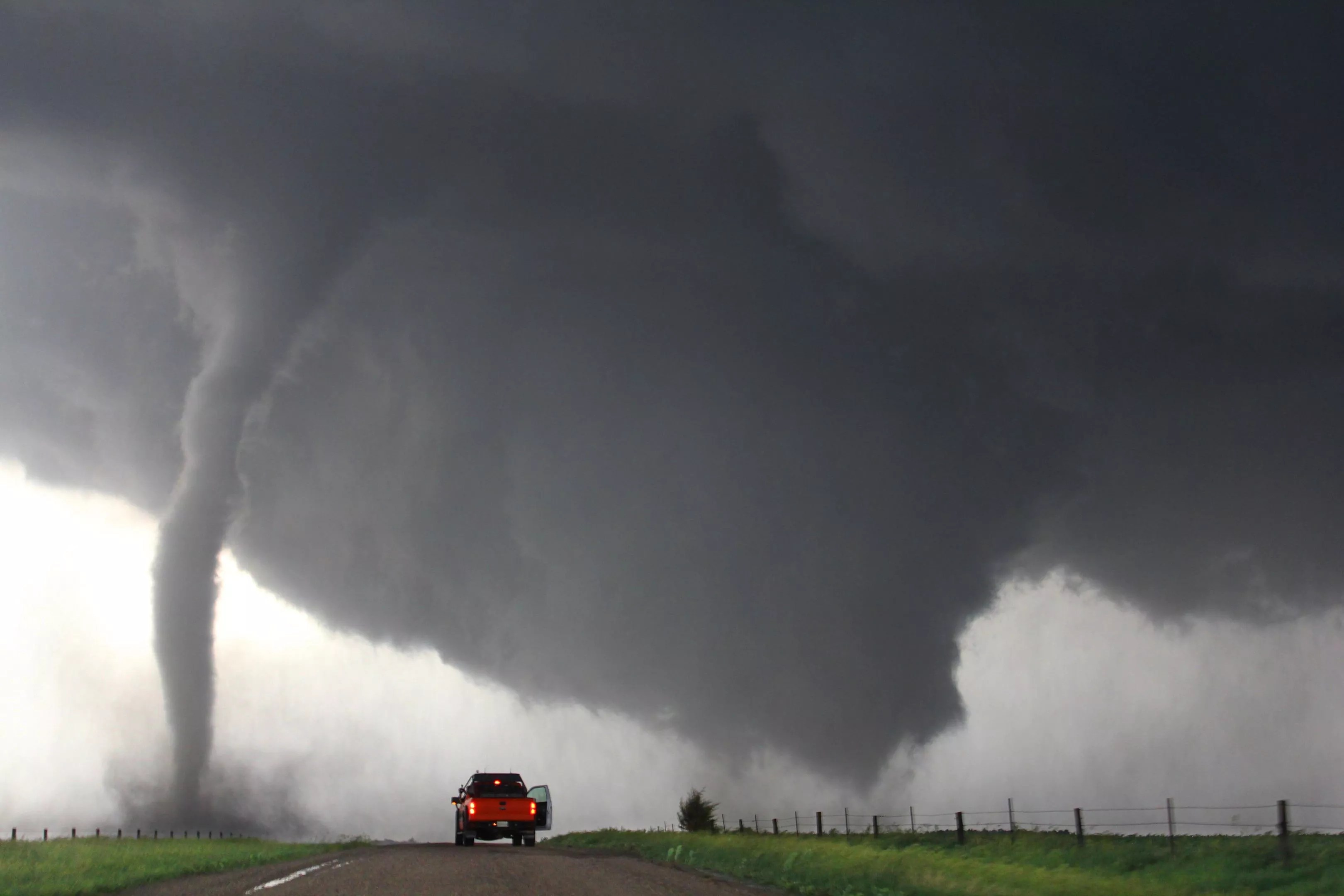
Flickr/NOAA Photo Library

Audio By Carbonatix
Aurora‘s siren warning system for extreme weather is so stuck in the 1980s that city officials have told residents to monitor storms themselves with their phones and computers.
“We have been bandaging the city’s siren system year after year, and now the bandages are running out,” City of Aurora emergency manager Matt Chapman says in a June 20 press release. “Outdoor siren systems used to be one of the only ways to warn people to go indoors in times of an emergency and seek additional information from other sources. Today, you can receive emergency alerts with a lot of information from devices in your pocket, your computer, weather radios on your nightstand or alerts on television.”
According to the city’s Emergency Management office, Aurora needs $3 million to upgrade at least three dozen of the nearly sixty sirens it currently has, while another eight or nine new sirens need to be installed in areas where the city has grown over the years. The city also needs to purchase new software and “overhaul” its radio infrastructure to bring the siren system up to snuff, the office adds.
Major storms aren’t horribly common in Aurora, but Adams County ranked third in the country in tornadoes from 1950 to 2016, with a combined 435 recorded segments.
Multiple tornadoes were spotted in eastern Aurora in May, when a bout of severe weather affected the Denver metro area and damage was reported in multiple parts of Adams and Arapahoe counties. Parts of Aurora, including homes, parks and schools, were damaged by the 2013 floods that affected cities across the Front Range, also.
According to Aurora Emergency Management, city staff have been briefing individual city council members on the system’s needs during the last several weeks amid discussions for next year’s budget. The Aurora City Council expects to get an update on the siren system along with repair recommendations at the next study session on Monday, June 23. The city only told Westword that council expects a “robust discussion” at that meeting when asked for comment for this story.
However, parts of Aurora’s siren network are too old to repair because necessary parts for the forty-year-old system are no longer available, so the city is urging residents to sign up for mobile alerts from “the National Weather Service (NWS), weather apps, local television stations and opt-in emergency alert systems,” according to the June 20 press release.
“Emergency alert systems can send notifications about impending weather patterns directly to mobile devices, providing real-time safety guidance wherever and whenever weather dangers are present,” the press release adds.
Aurora also encourages residents to register for CodeRED, the city’s opt-in emergency alert system that sends “targeted, geographically specific notifications, which also include evacuation notices, threat warnings and missing person alerts,” the press release states, adding that “alerts and notifications can be customized to a user’s specific needs and preferences.”
The way the City of Aurora sees it, with all these cool, new tools in the palm of your hands, who needs sirens?
“Those tools are much more useful and reliable than decades-old siren systems that cannot be pinpointed to specific areas and were never designed to be heard indoors,” Chapman said. “The last thing anyone should do is go outside in severe weather to listen for the sound of a siren.”
Other states are worried about detecting life-threatening storms, too, but that has to do with President Donald Trump’s cuts to the NWS and the National Oceanic and Atmospheric Administration (NOAA), federal agencies that monitor storms like hurricanes, fires and tornadoes. Trump’s cuts are also expected to impact the weather alerts that people get on their phones, as most apps rely on both agencies to deliver those timely and accurate alerts.
In the end, the whole country might be stuck with a storm warning system as unreliable as Aurora’s.